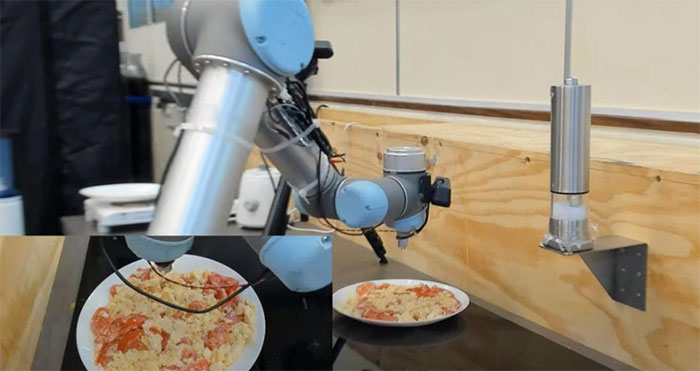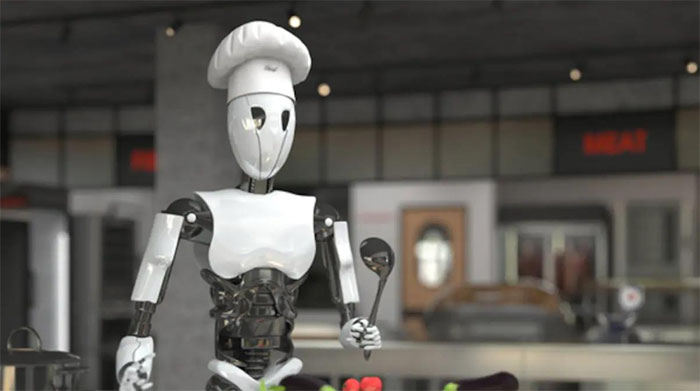Scientists Successfully Create a Robot Capable of Tasting Food Like Humans
Machines are increasingly demonstrating their ability to learn everything, rapidly replacing humans at an unprecedented pace.

Cooking and tasting robot for tomato omelet research by the University of Cambridge – (Photo: DAILY MAIL).
Recently, technology experts have developed a robot capable of tasting and sensing food—a task that was previously thought impossible for machines.
Not only can the robot enjoy the finished dish, but it can also taste the food during the cooking process like a real chef.
This project is the work of a team of experts from the University of Cambridge in the United Kingdom. The robot features a salt probe attached to the end of its robotic arm. Inside the probe is a complex system of sensors that can detect varying levels of saltiness, helping the robot determine the concentration of salt in food.
To avoid “tasting” food mechanically, the robot is trained to perceive saltiness in stages, mirroring the human chewing process.
In other words, the flavor of the food will be evaluated by the robot in a simulated environment that closely resembles when food is in a person’s mouth.
For example, with a tomato, simply checking its sweetness and saltiness will not accurately reflect its flavor. This is because food entering the mouth is influenced by various factors such as saliva and digestive enzymes, which alter the taste to some extent.
Tests have been conducted with promising results. The robot can accurately perceive flavors, starting with the saltiness of simple dishes like tomato omelet.

Cooking robots are becoming increasingly popular – (Photo: GETTY IMAGES)
The research team continued to have the robot “assist” in a cooking session, allowing it to taste throughout the process of making the tomato omelet. The result was a well-seasoned dish.
Dr. Arsen Abdulali from the University of Cambridge, a member of the research team, noted that this is the difference between a food-tasting robot and a standard salinity meter.
“Electronic testing methods only assess at a basic and uniform level, while we have created a robot that tastes food just like a person chewing, mimicking human taste perception,” Dr. Arsen Abdulali stated.
In the future, the team will continue to improve the robot so it can also detect additional flavors such as sweet foods or those rich in oil.
“We believe that in the future, robot chefs will play an important role in busy restaurants or households,” Dr. Arsen Abdulali added.


















































